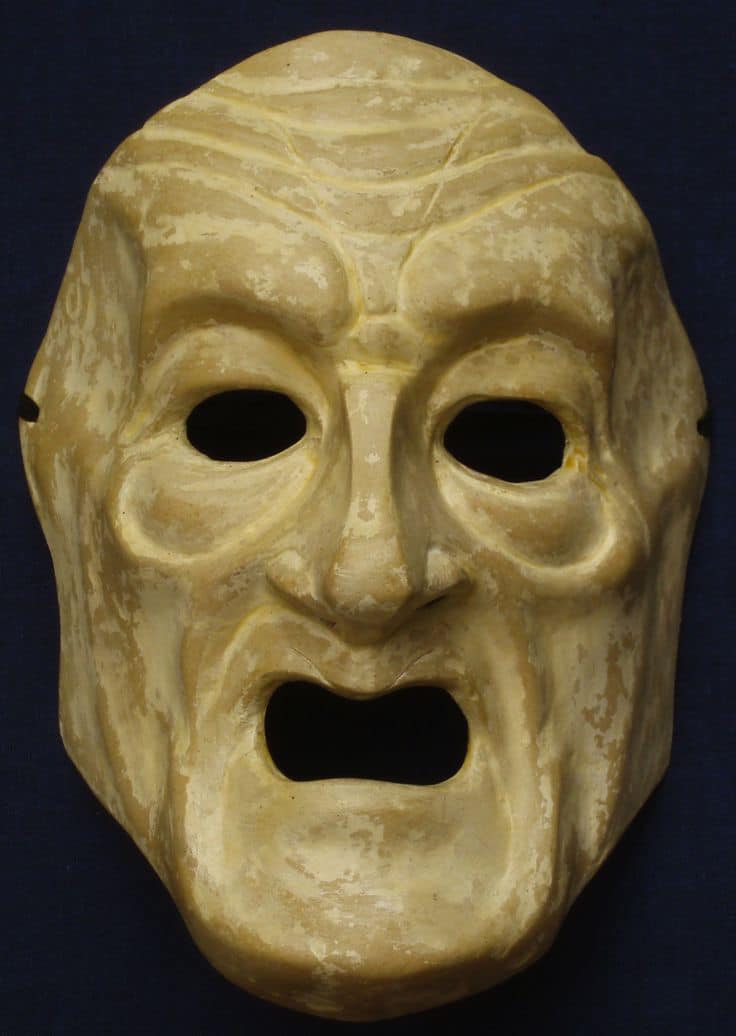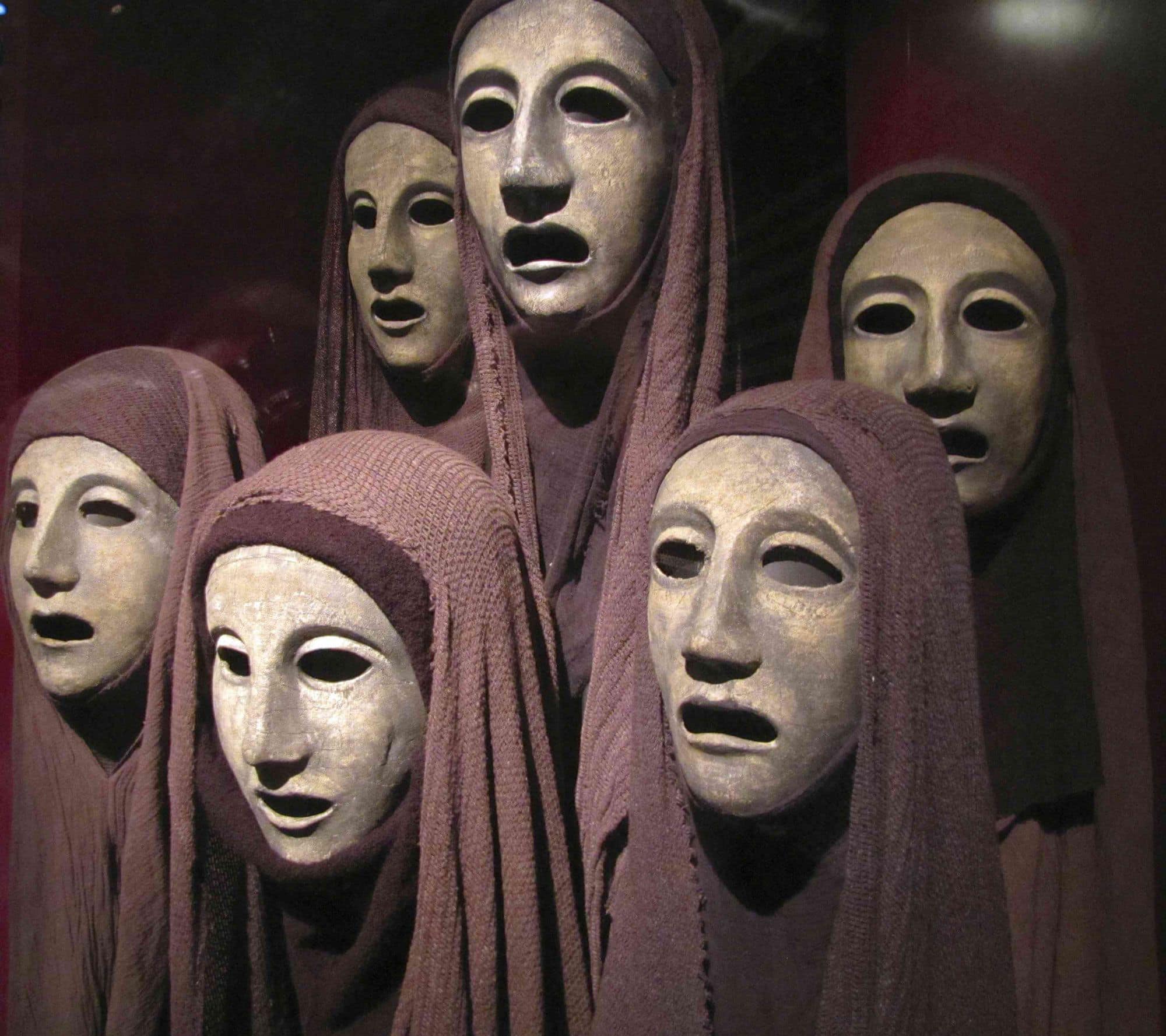17,259 total views
Homily for Wednesday of the 21st Week in Ordinary Time, 30 August 2023, Mt 23:27-32

I don’t know if you remember a homily I shared three years ago now, a reflection on today’s Gospel and the use of the word “Hypocrite” in reference to the Pharisees. The English word HYPOCRITE originates from the Greek word “Hypokrites”, which means “someone who acts from underneath a mask”. In simple language, a stage or theatre actor. One who is able to convince the audience by the way he interprets or plays out his role that he is really that person, which, of course, he is not. He is just play acting. Umaarte lang. The actors in ancient Greek theatres wore masks to project their character. At the end of the play, they came out and removed their masks as they were applauded.
There is nothing essentially wrong about play-acting in itself. It is a respected kind of performing art, and we call actors ARTISTS (in Tagalog, artista). Good actors can get in and out of the characters that they portray and return to being themselves when they are no longer on stage or before a set.
And so it is in a way unfair to give a negative meaning to the word “Hypocrite” if you know its linguistic background, namely, that it has to do with play acting. Actors know they are just acting. Perhaps when Jesus applied the metaphor of play acting on the Scribes and Pharisees, what he really meant was bad play acting or even overacting. It is one thing to play the role of the Messiah and another thing to actually behave and believe that you are the Messiah or Son of God. The proper term for that is not play-acting but being delusional.

That is in fact the sense that I get when I read the common negative definition of a HYPOCRITE as
“a person who acts in contradiction to his or her stated beliefs or feelings.” It is the inconsistency that gives them away. In modern acting worshops they have this principle: “If you want to be convincing actor, don’t consciously play a role or act out a character. Be that character. Enter into his skin.”
The story about the conversion of Jacob before he became Israel is a good illustration. How he became the ancestor of the people of the covenant, with the mission of serving as bridge between heaven and earth, but only after outgrowing his deceitful character, only after divesting himself of his duplicity. (In Tagalog we say, “doble-kara”.)
I have pointed out many times before that the typical portrayal of the Pharisees in the Gospels as hypocrites in that negative sense of bad play acting is a bit unfair, historically. They were not all as ill-willed as they are caricatured to be. In fact Jesus seemed to be very close to many of them. While he knew that some of these Pharisees were following him in order to know what charges to bring against him, he also knew that there were among them those who were genuinely interested in his teachings, like Nicodemus.
In the fourth Gospel, Nicodemus is portrayed by John as a “closet disciple” who came to see Jesus in the dead of night because he was not yet ready to face the possible consequences of being known publicly as a follower of this carpenter Rabbi from Nazareth. I imagine how Nicodemus must have suffered trying to put up a face before his fellow Pharisees who denounced Jesus. This Pharisee would eventually find the courage to go public and face the consequences of being a disciple of Jesus already at the foot of the cross. His presence at the crucifixion is like his final act of removing his mask as an actor in order to show his true face to the public. If only to honor Pharisees like Nicodemus, I think we should stop equating the word Pharisee with Hypocrite.


















